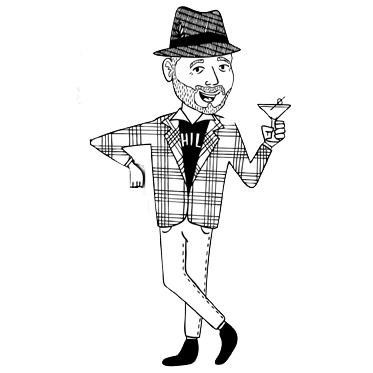 Trivia questions have to come from somewhere, so a good quizmaster will search a variety of sources, from trivia books, to trivia websites, to trivia video games to (alas) wikipedia. But some people just flat out steal every question from somewhere verbatim to make their pub quizzes.
Trivia questions have to come from somewhere, so a good quizmaster will search a variety of sources, from trivia books, to trivia websites, to trivia video games to (alas) wikipedia. But some people just flat out steal every question from somewhere verbatim to make their pub quizzes.
That’s part of the reason why Dicker from Denver doesn’t post trivia questions on the Geeks Who Drink blog, because he doesn’t want people to steal them. I’m a bit more relaxed about that, but I get where he’s coming from.
So I was interested when I stumbled across the following message board on the Straight Dope earlier today, in which someone posted that their quizmaster was stealing all of his questions from a trivia book the guy had recently read. While the discussion itself is interesting, it becomes even more interesting when you learn via a link in the thread that the guys who made millions on Trivial Pursuit basically stole a lot of their questions from a book called Super Trivia by Fred Worth (You see me holding a slightly updated version of it in my promo photo to the right. And no, I don’t use it. The questions are outdated). I had heard this story before, but never the full version. This from a website called triviahalloffame.com, which was linked to on the message board.
But it wasn’t just jealousy that had Worth upset. A lot of the questions bore a suspicious similarity to material from his books. In fact, he would decide that a third of the questions had been lifted from “Super Trivia.” In some cases, the game even copied the typographical errors and misprints. (Not to mention the book’s many unintentionally false facts.) It was time for Fred to set off his bomb. He began looking for the false fact he had planted in his game. And there it was. What was Lt. Columbo’s first name? “Philip,” said Trivial Pursuit.
“Ah ha!” shouted Worth. He had simply made up this business about Philip Columbo. His false fact had been stolen and he now had the evidence. On October 23, 1984, he filed a lawsuit in the federal district court for Southern California, against John and Chris Haney, Ed Werner, and Scott Abbott, who had created the game, as well as against the game’s US and Canadian distributors, Selchow & Righter and Horn Abbott Ltd. Worth wanted $300 million in damages.
Unfortunately, that’s about as far as he got. The trap he had sprung proved useless when the Trivial Pursuit people admitted copying from “Super Trivia.” However, they also copied from lots of other people. As one Web site puts it, “When you copy from one source, it’s called plagiarism; when you copy from many sources, it’s called research.”
And that was that. Worth’s case was thrown out of court by Judge Wm Matthew Byrne, Jr. It never even came to trial. In 1987, the 9th Circuit Court of Appeals upheld the dismissal, declaring that Trivial Pursuit was “substantially different” from “Super Trivia”. The courts decided that the presentation of facts in an encyclopedia, where entries are listed alphabetically, was very different from the rewriting of those same facts as questions, and their division into categories randomly picked on a Trivial Pursuit card. On March 28, 1988, the United States Supreme Court rejected an appeal from Worth’s lawyers.
Note that this is very different from simply stealing the questions and doing some minor reformatting or editing, which we consider stealing. Ahem!
So it probably wouldn’t be worth it for me to go chasing after question stealers (or for people whose trivia books I read to go chasing after me). But quizzo is a sport of gentlemen, and while grabbing a question here and there from various sources, checking them out and then giving them your own spin is par for the course, full on copycatting is extremely poor form.


makes sense then why I’m always taken with how poor TP questions are compared with, say, Jeopardy – a show that has its own writing staff and consistently produces high quality, original, albeit sometimes corny, stuff.
I blame the Moops.
Quizmaster Rule of Thumb #1: Never, EVER rely on a Trivial Pursuit card being accurate. I swear, 20% of their questions in every edition are wrong. Jeopardy questions, meanwhile, check out about 99% of the time, though I think last week a Final Jeopardy question had another answer. “There are 2 countries where you can you add two letters to to make another country. One is Austria/Australia. What is the other?” They were looking for Niger/Nigeria. However, while discussing that question with a team at Quizzo last week (Banana Stand), they said, “Wouldn’t Mali/Malawi work too?” It looks to me like it does.
Did some comments disappear?